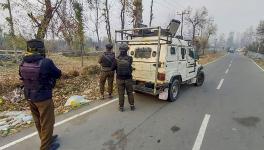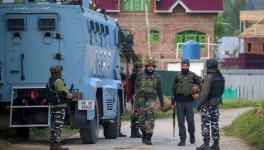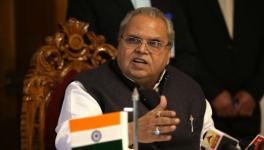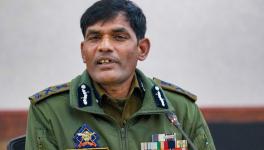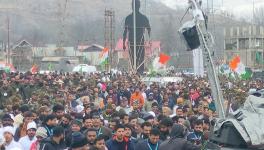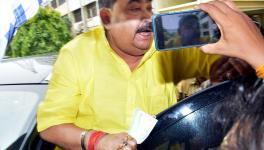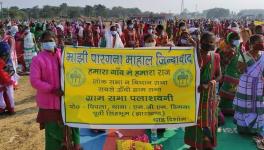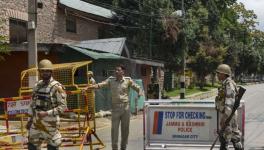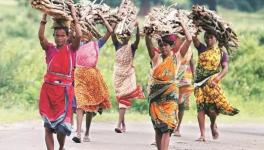Sankerguda Killing: Judicial Commission Denies Maoist Connection, Puts Onus on Armed Forces

Image for representational use only.Image Courtesy : Deccan Herald
Resolve of Kamala Kaka, a resident of Sankerguda in Chhattisgarh to take up the fight with the government in order to get justice for her nephew and cousin—who were allegedly killed by the security forces on the intervening night of June 28 and 29 in 2012—has now been further strengthened.
Kamala, after the leaked report of Justice V K Agarwal judicial commission, says that the biggest win is that the commission, in its 78-page report, has accepted that the villagers who were brutally murdered by the security forces had no Maoist connections and no firing was done by the villagers targeting the security forces.
Kamala’s nephew Rahul Kaka and cousin Saraswati Kaka were two of the seven minors who were killed in an encounter by the Central Reserve Police Force (CRPF) and the police. It should be noted that 17 people including seven minors from Sankerguda, Kothaguda and Raj Penta were killed allegedly by the security forces while they had assembled in Sankerguda for the preparations of the sowing festival, Beej Pandum. Beej Pandum is a festival celebrated by the tribals in Chhattisgarh ahead of the sowing season on the onset of monsoon.
The findings of the judicial commission
The judicial commission led by the former Justice Vijay Kumar Agarwal, which reached a conclusion on October 30, did not find any evidence of firing by the villagers on the security forces.
The report by the retired Madhya Pradesh High Court Judge reads, “It has not been proved by satisfactory evidence that the confrontation was with the members of Naxal outfit or that they were present in or were participants of the meeting or in the incident of confrontation with the security forces. It has not been proved that the people killed and injured in the incident other than security personnel were Naxals as there is no satisfactory evidence in that regard.”
“Police claims were wrong and no proof of the firing could be produced by the police. The claims were flawed and tampered with,” reads an excerpt from the report.
The brutality of the security forces
“Ten out of the seventeen people at the Beej Pandum meeting received injuries in their back. Such fleeing persons could not have posed any threat to the security forces and causing fatal bullet shot injuries to them was totally dis-proportionate and unwarranted use of the forces,” the report reads, adding, “One Kaka Mithun was shot from close quarters and the firing was deliberate and certainly not in self defense as the movement of the bullet was downward from the head.”
The report accessed by NewsClick further reads, “Irpa Somlu, Korsa Bicche, Irpa Narayan, Hapka Mithun, Irpa Dharmaiya, Madakam Dileep received large number of bullet injuries in small areas which are usually caused by bursts but the security forces have denied any burst so this could not be justified.”
The ill-fated night
Kamala recollects that she had returned to her village on the same night at around 7:30 pm from her work and was resting in her room.
“I went to my room after changing my clothes at around 8 pm. The men, boys and other members were going for the meeting of Beej Mandum and everyone in the village looked happy. At around 10 pm, we heard the first gunshot and then the security forces wreaked a havoc on us by firing from all directions. All I remember is that throngs of security forces entering the houses, trying to vandalise the property, beating people to death and my cousin and nephew being killed,” she says, adding, “In the morning, we saw dead bodies lying across the village and then, we got to know that 17 people were murdered by the security forces.”
“One of the men from the village was taken by them and they beat him till he died. We went to the police station asking them for the dead body, but we were denied the body and they buried it in front of the police station,” she says.
The difficulties in the legal battle
Shalini Gera, one of the lawyers who represented the tribals of Bijapur in this case, says that it was one of the toughest cases she has fought in her life.
“Bringing the witnesses to the court for hearings was one of the major challenges. In the initial days, the commissions arranged for some facility so that the tribals could come to the hearings, but imagine the pain in travelling to places like Bijapur, Raipur, Jagdalpur and even Bhopal for hearings. Another challenge was the label of ‘Naxals’ given to the tribals. The counsel for the security forces kept dubbing the lawyers and the witnesses as Naxals which made us uncomfortable at times but it was our grit and determination that we continued to fight for justice,” she says.
Gera adds, “Encounters keep happening in Chhattisgarh very often and the government should order a fair probe in cases where questions are raised by the villagers.”
Get the latest reports & analysis with people's perspective on Protests, movements & deep analytical videos, discussions of the current affairs in your Telegram app. Subscribe to NewsClick's Telegram channel & get Real-Time updates on stories, as they get published on our website.









